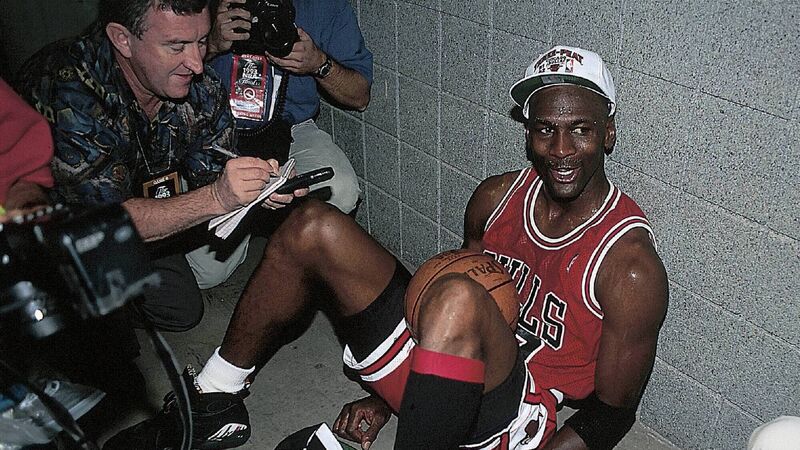John Riordan: Like Mike? Jordan at 60 still an inspiration to generations

Chicago Bulls talisman Michael Jordan in the victorious locker room after winning Game 6 and the championship in 1993. Picture: John W. McDonough/Sports Illustrated via Getty Images
Happy birthday, Michael Jordan. He's 60 today and he remains the benchmark for every great achievement in American sports and culture.
The great and the good of the NBA gather in Salt Lake City over the next three days for their All-Star Weekend and, as ever, the greatest to ever do it will cast his extensive shadow across proceedings.












